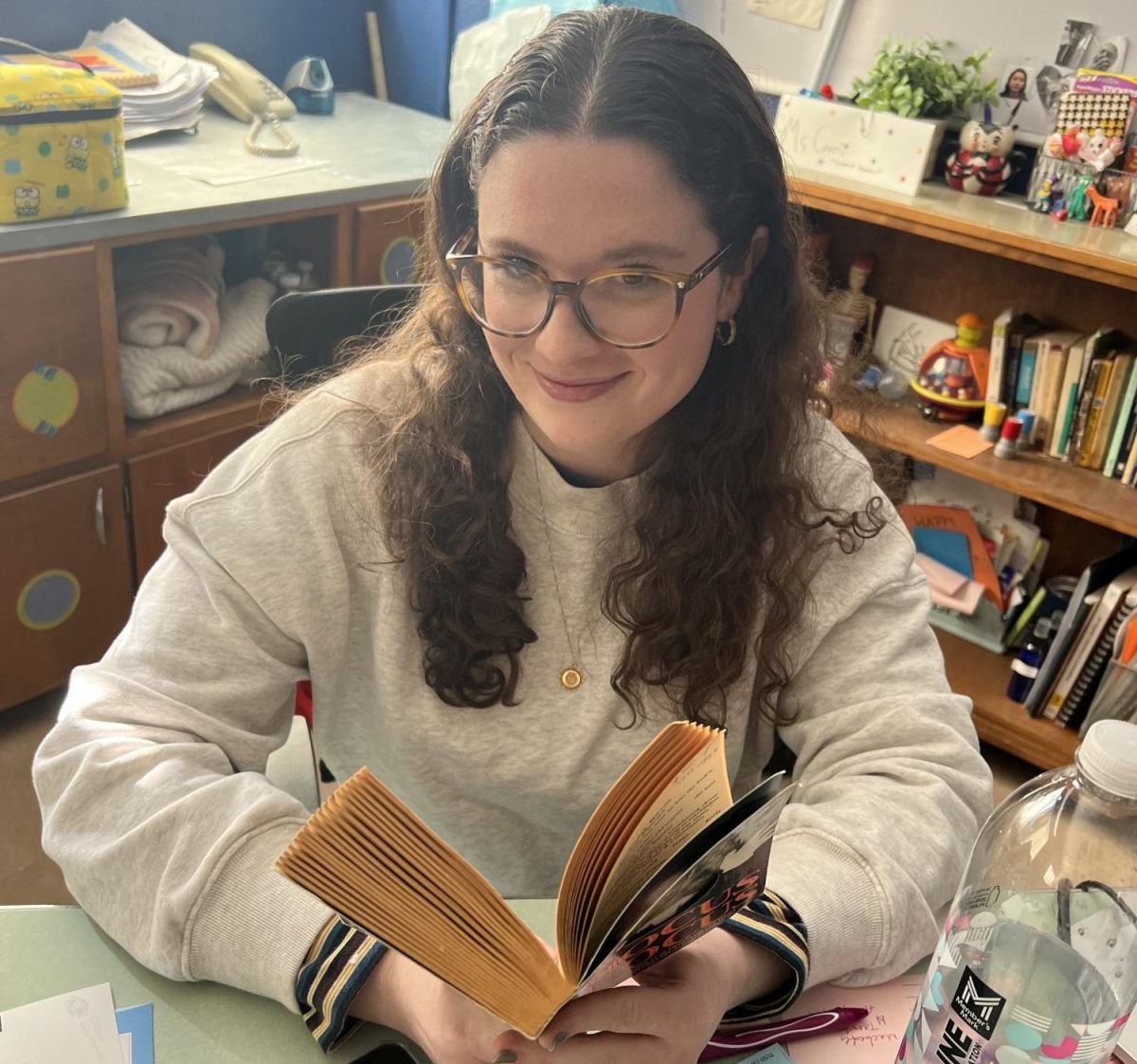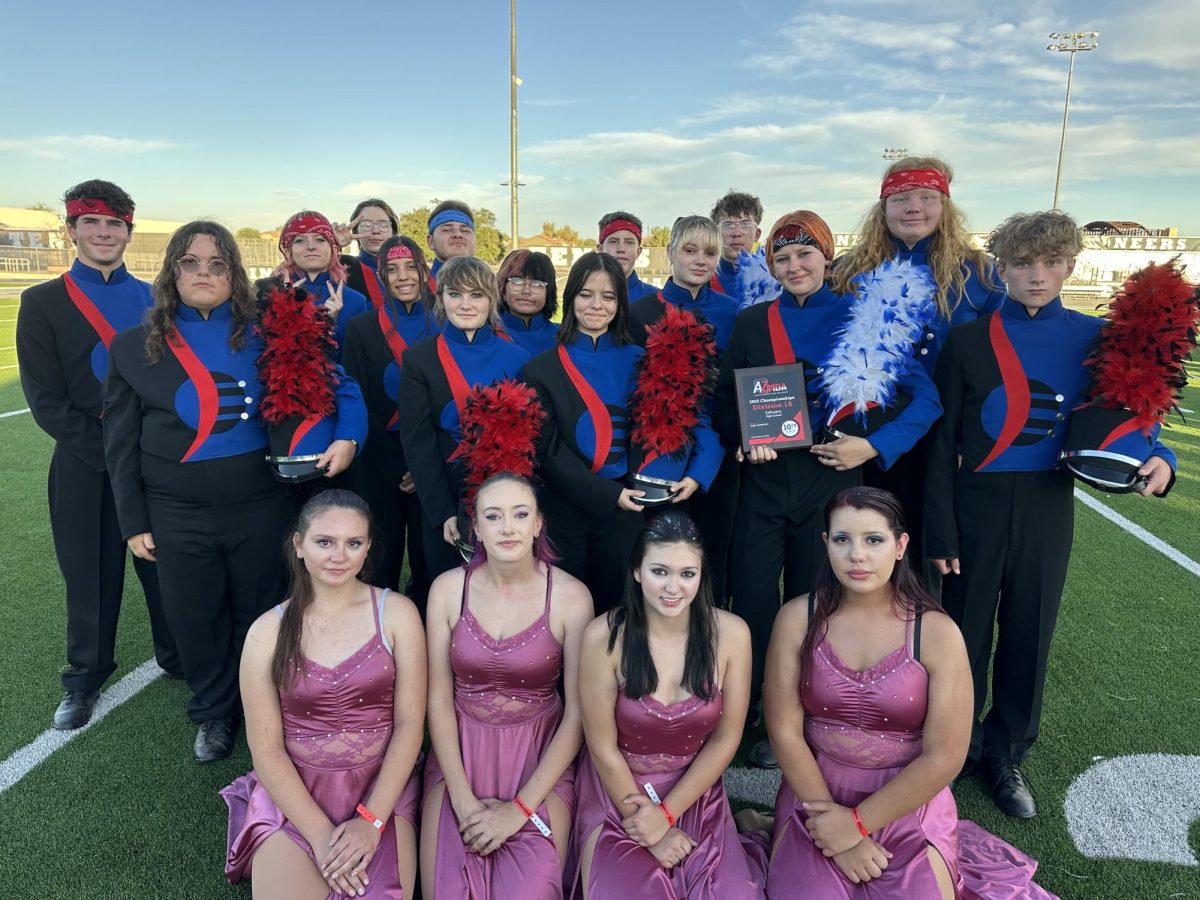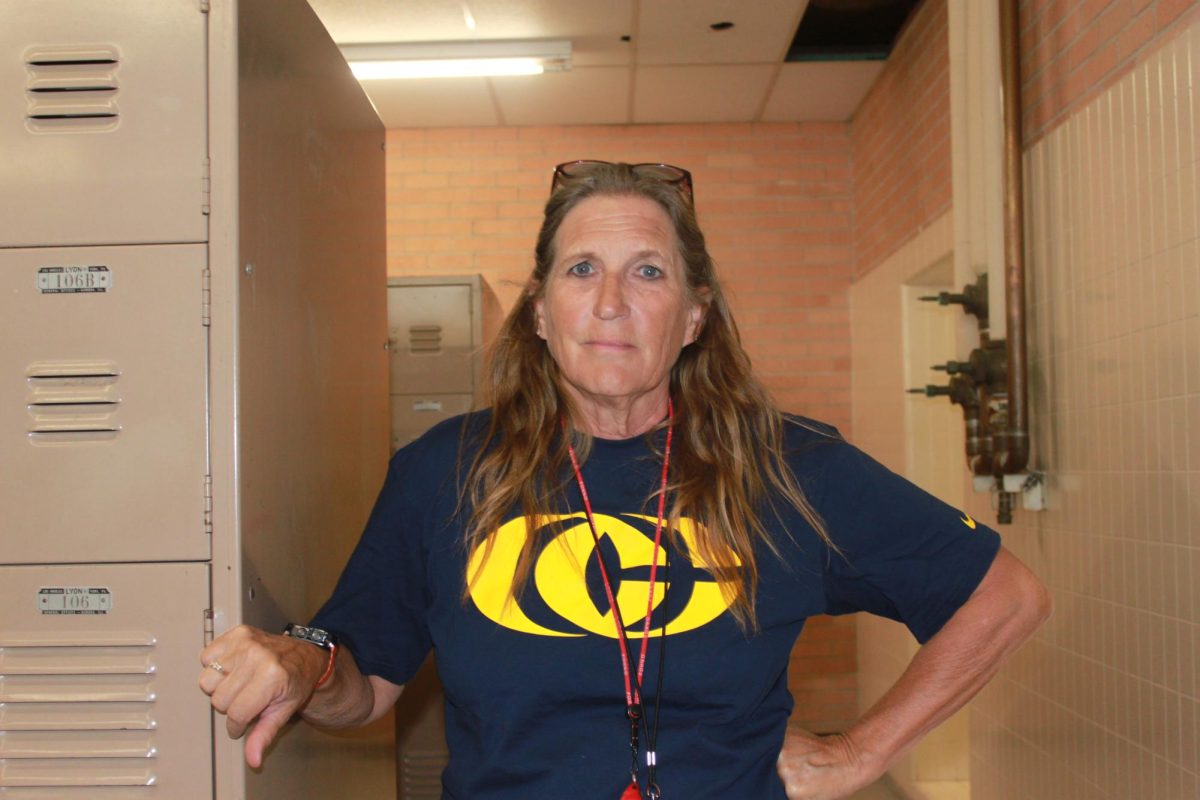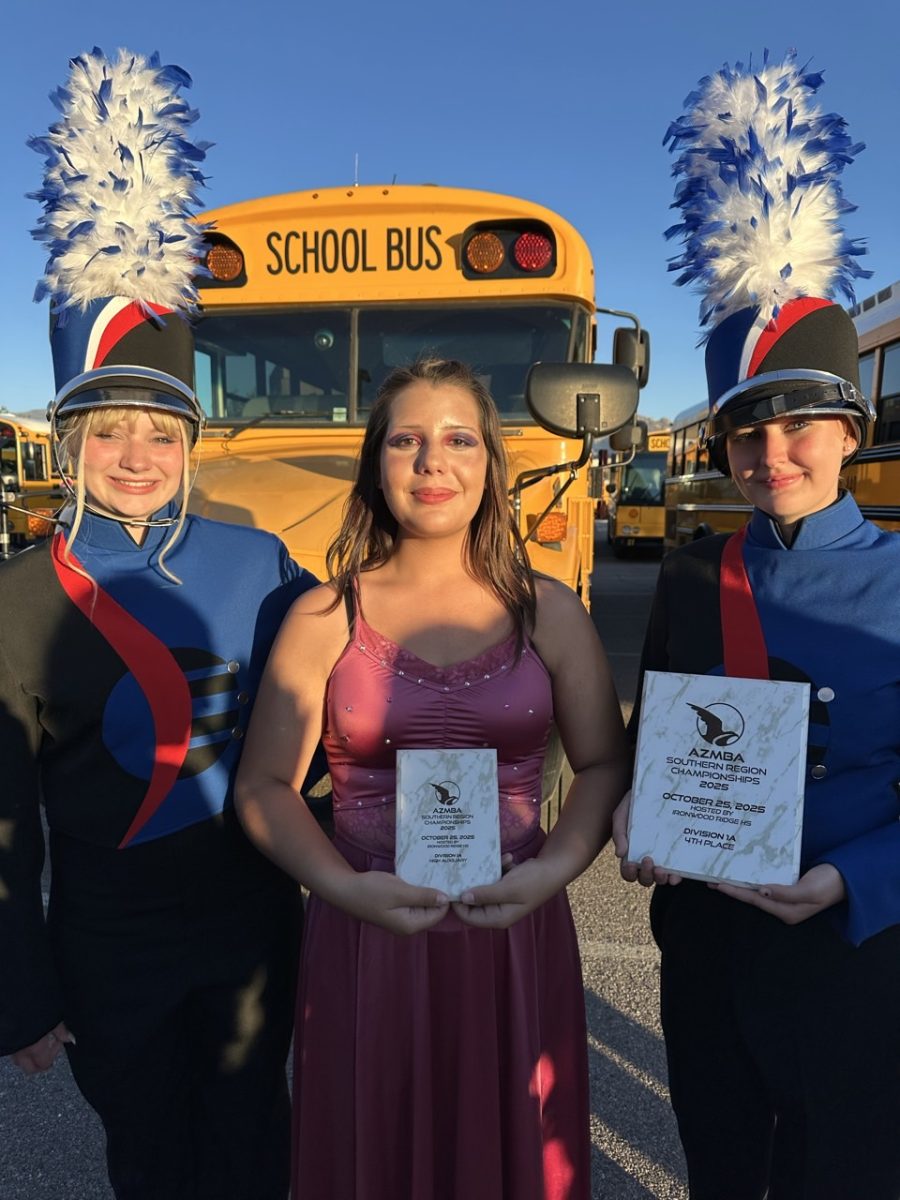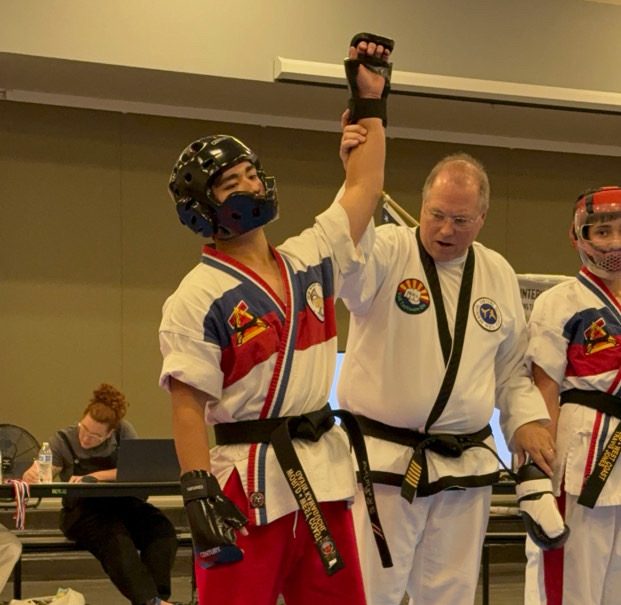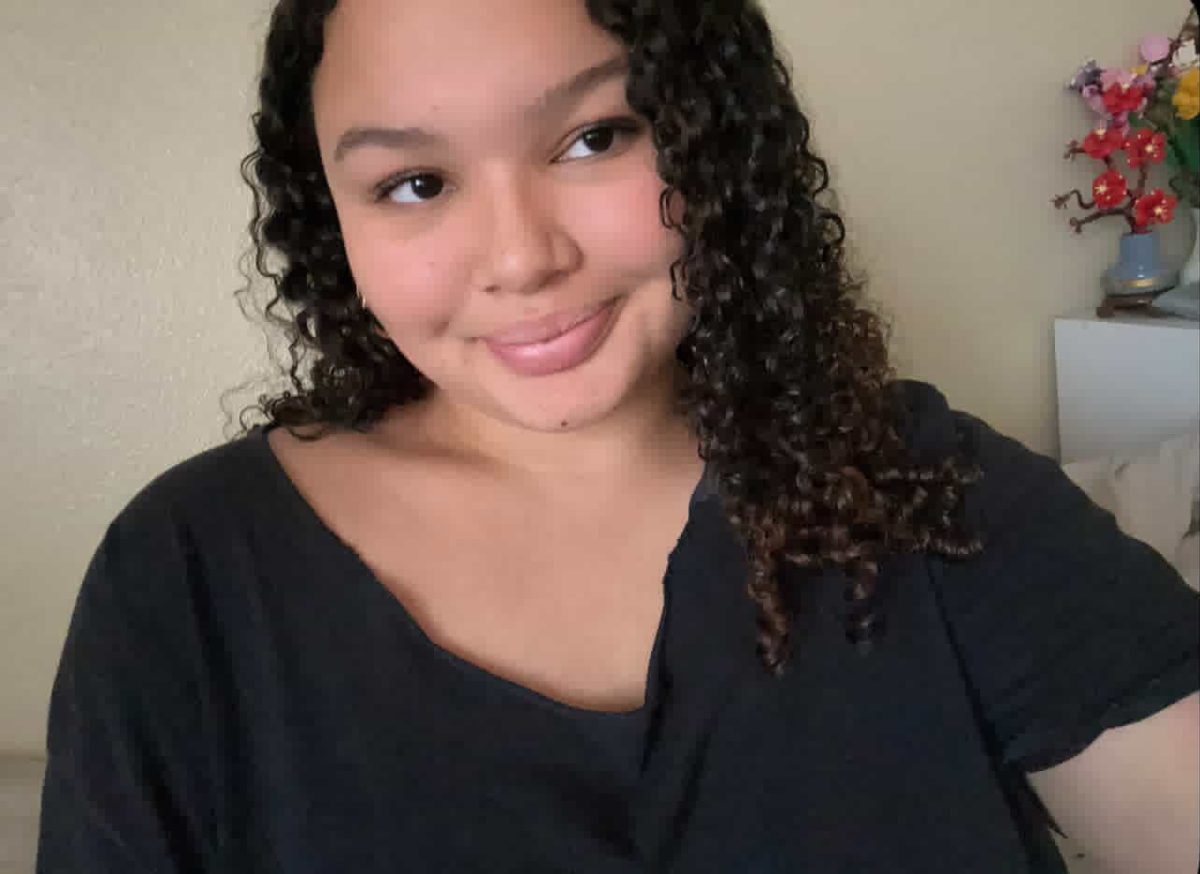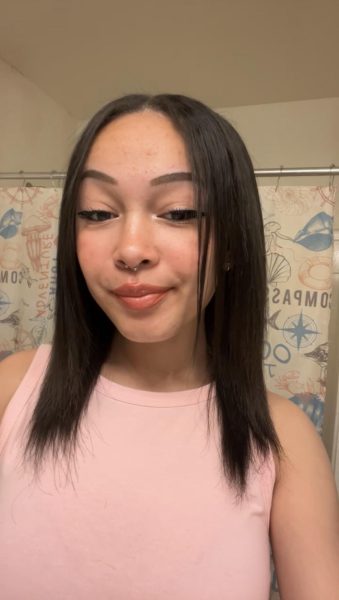In high school, Ms. Tuli discovered her love and passion for English, saying, “I remember when I was like a sophomore in high school thinking ‘This is what I want to do with my life’ but not thinking it was something that I would ever actually be capable of.” Ms. Tuli teaches sophomore English and AP Literature for seniors. She went to high school at Desert Vista High School in Phoenix, coming to Tucson when she attended the U of A, and she’s been here ever since.
While studying at the U of A, Ms. Tuli majored in English with a minor in Adolescents, Community, and Education. On the side, she conducted a college radio show through campus radio. “Anybody who’s going to the U of A, I definitely recommend that experience, it was very cool. You got to have your own radio show. The first few years I did it, it was like a music variety show. Indie music and post-punk were my favorite genres at the time,” she said. “The last two years of it was like a talk show with my friends. We had fun with that, we had this whole separate world going on.” Ms. Tuli never seriously considered a career in radio hosting and did it more for the experience, and although she doesn’t listen to post-punk as much anymore, she thinks it is definitely a part of her identity.
Ms. Tuli was somewhat unsure of what she wanted to do after college. She wasn’t necessarily on track to being a teacher and didn’t envision herself as one, so she was trying to figure out what she wanted to do with her life. Eventually, she realized what she was meant to do. She explained, “Teaching kind of fit into place. When I looked at my values and looked at what I wanted to do in the world, everything led me back to teaching. But I didn’t think I was going to be a good teacher, so that was holding me back I think until I actually did it.”
A couple of days after graduating from the U of A, Ms. Tuli started a master’s program in education and teaching. She did her student teaching at University High School and thought it was a really good experience, but it didn’t necessarily prepare her for the realities of teaching because the students there wanted to learn and loved to learn. When she started at Sahuaro, she remarked how it was a little bit of a transition.
Ms. Tuli started teaching at Sahuaro during the 2019-2020 school year. She taught in person for three quarters, but when COVID hit, learning was remote for the remainder of the school year. Going into the 2020-2021 school year that was fully remote, Ms. Tuli was initially nervous because she was concerned about how she would make connections with her students in that type of environment. However, she got to know her students very well and she got to meet a lot of them at the end of the year when students returned for hybrid learning. She mentioned, “There were aspects I liked about remote learning, but I did miss the in-person aspect more than I liked the remoteness of it.”
Coming back to teach in person, Ms. Tuli had no expectations. She explained, “Every year is different. It depends on the students. I’m kind of reserved so I acclimate to what is in front of me, and I think I’m successful with that.”
Ms. Tuli tries to prioritize getting to know her students. She stated, “I absolutely see value in making connections with my students and I think at the end of the year it’s very hard to say goodbye, especially to the seniors. A lot of the stuff that goes on in the classroom environment is what you’re gonna remember. You’re not gonna necessarily remember the intricate details of every line from Hamlet, but you’re going to remember our class discussions about it and those interactions while we’re reading it. That’s where you’re getting your takeaway stuff. So, I know it’s important to build those connections.”
Ms. Tuli’s favorite part about teaching is when she, “…can see that ‘this matters to somebody else.’ Way beyond myself or because it matters to me, I think that it is very meaningful to see students read something and see themselves in it or read something and have their perspective shifted. Those are the things that I think I find the most meaning in when I see that happening right in front of me.” She thinks that the hardest part about teaching is when she feels overstimulated and needs to take a step back. “99% of the things that are gonna happen in your day are going to be at your expense. So when you’re low fuel-wise, those days can be hard.”
On those stressful days, Ms. Tuli tries to remember that, “…It’s not that deep.” She also tries to remember the impact she will have on her students. “Sometimes I don’t gauge the impact right in front of me in the moment. It’s nice to know that that impact doesn’t just go away. It’s something that the majority of the students will always carry with them, so it makes it worthwhile.” On those days, Ms. Tuli also tries to remember what she’s here for – to teach her students. “Everybody in front of me is a person and I’m like a public servant here to serve them in getting an education. That matters to me and that’s not lost on me. So I try not to let the actual substance of it get lost on me just from having a bad day.”
Ms. Tuli thinks one of the best things about being a teacher is the guaranteed breaks during summer. During the summer, she tries to make rest And self-care her main focus. She loves her summers, typically going to California and spending a lot of time in San Francisco. She has family and friends in LA and San Francisco, so she likes to have fun and not work too hard, and of course, read a lot because she doesn’t get to read much for pleasure during her day-to-day because she is so exhausted after work. She said, “I try to prioritize that and make sure that I’m not becoming stagnant in my own learning because I think it’s really easy to kind of check out from life and from surrounding yourself with literature and worthwhile media. So, I try to be intentional about making sure that I’m still seeking out learning.” She continued, saying, “I try to make sure that I’m not becoming a passive bystander to life and just becoming comfortable with what I already know or what I’ve already read or what I teach. It’s very easy to kind of get stuck in that so I just continue to broaden my mindset.”
To stay consistent, she makes a goal for herself every year to read 60 books, and she just recently finished her 60th book. She doesn’t think it’s necessarily good to put numbers to it, but she thinks it’s a good way to kind of force herself to absorb more knowledge.
One thing Ms. Tuli wants her students to know about her is, “…that I care about who each of them are as a person and that I really am rooting for them in life. I really do want to know who they become and how they become. I think this is the best job in the world. It’s one of the hardest jobs in the world, but the students every year make it worth it and when you form those relationships it’s hard when it’s the end of the year. It’s really wholesome when every class becomes a little family by the end of the year and it’s a really beautiful experience to be able to facilitate that.”
Ms. Tuli’s biggest piece of advice for her students is to always be kind and always practice gratitude. She knows that life gets tough sometimes and that things happen to all of us, but she thinks it’s really important to not let those things get in the way of how you treat other people. She thinks apathy and cynicism are easy emotions to fall back on, but that it’s important not to fall back on those emotions and to be a kind, good person.











